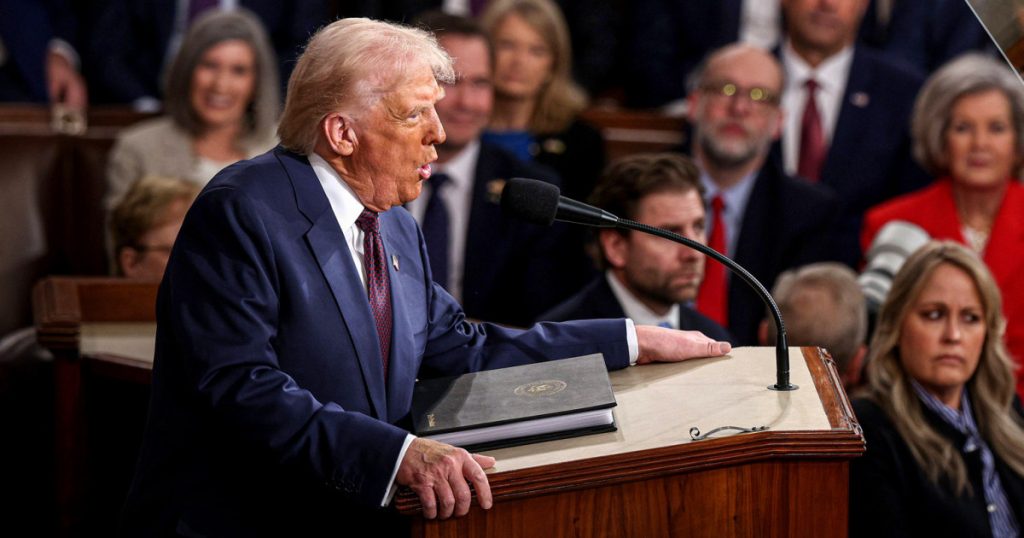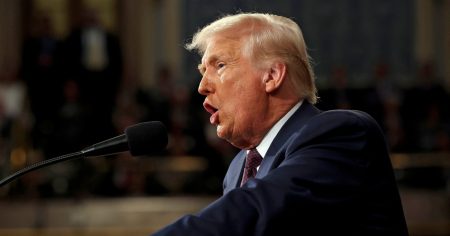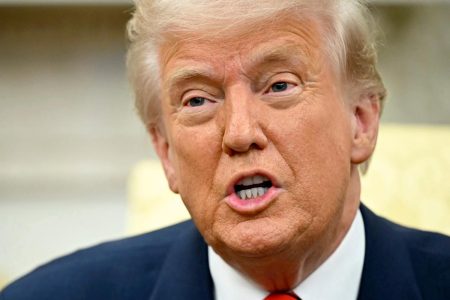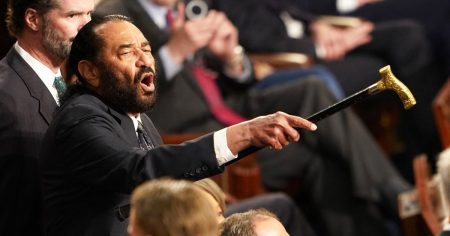Stock Market Reacts to Tariff Reprieve
The stock market experienced a notable upswing on Wednesday, driven by news of a one-month reprieve on tariffs imposed by President Trump on U.S. automakers importing goods from Canada and Mexico. The S&P 500 rose by 1.1%, while the Nasdaq climbed 1.5%, and the Dow Jones Industrial Average saw a significant gain of nearly 500 points, also reflecting a 1.1% increase. This volatility followed Trump’s announcement granting Ford, GM, and Stellantis (formerly Chrysler) a temporary exemption from the 25% duties on vehicles produced in their Canadian and Mexican facilities, as communicated by White House press secretary Karoline Leavitt.
Trump’s Tariff Strategy and Communications
President Trump’s decision came after discussions with the leaders of the Big 3 automakers, signaling his openness to further exemptions. However, he expressed dissatisfaction with Canada’s efforts to address drug trafficking and immigration issues, as mentioned in his posts on Truth Social and during his address to Congress. Despite these concerns, Trump’s administration has shown flexibility, delaying tariffs twice since initially threatening them post-election. This approach reflects a strategy to balance economic interests with political priorities, as he prepares for talks with Mexican leader Claudia Sheinbaum.
Market Uncertainty Persists
Despite Wednesday’s gains, the market remains uncertain, with the S&P 500 down 3.6% over the past month. Trump’s unpredictable tariff strategy has contributed to this instability, impacting investor confidence. The ongoing situation highlights the delicate balance between economic policies and international relations, as markets react to each development with heightened sensitivity.
Economic Indicators and Presidential Address
Economic data revealed a slowdown in private-sector job creation, with only 77,000 jobs added in February, below expectations. While sectors like manufacturing and construction showed strength, education and health services lagged. In his address to Congress, Trump acknowledged potential adjustments due to tariffs, emphasizing their role in boosting American wealth and greatness, while assuring that any disturbances would be temporary.
Impact on Businesses and Consumers
Businesses, including automakers and retailers like Target, have voiced concerns over the tariffs, warning of increased costs and potential price hikes for consumers. Tariffs are typically paid by U.S. importers, who may pass costs on to consumers or absorb them through reduced profits. This scenario could lead to higher prices for everyday items, affecting households across the country.
Broader Implications and Future Outlook
The situation underscores the complex interplay between trade policies, market dynamics, and consumer impact. As Trump continues to navigate his tariff strategy, the focus remains on how these policies will affect economic stability and growth. The coming weeks will reveal whether the administration’s approach will achieve its intended goals without causing significant economic disruption, emphasizing the need for a balanced approach that considers all stakeholders.









